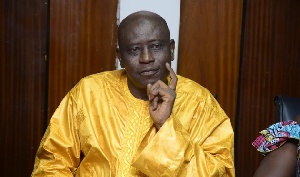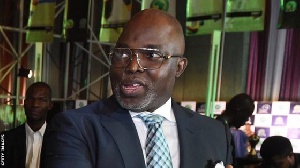Gagging the Church: The Impasse Between the NDC and the Presbyterian Church
Isaac Karikari (bkkarikari@yahoo.com)
The nature of the recent impasse between the Presbyterian Church of Ghana, and the NDC reeks of a subtle ploy to bastardize the church and push it out of the arena of social and political discourse. The comment by Mr. Asiedu Nketia that the Church should stick with the Bible and allow politicians to stick with the Constitution offers some validation to this view. For the Church to comment on a national issue is not wrong. People in government may have genuine concerns about the perceived or actual political posturing of [some] religious leaders. Those concerns should however not be a basis to delegitimize the Church. The assumption seems to be that the church is incapable of critical thinking. The meta message is that the Church, and religious leaders cannot undertake a critical appraisal of issues of national concern. This is quite insulting. This seems to be part of the deliberate and mischievous political branding of people simply on the basis of their submissions. We fail to properly evaluate what is said. Rather, we tend to not only disregard but also “attack” those who make statements contrary to what we believe and the positions we hold. Even for his “benign” comments on President Mill’s death Bishop Dag Heward-Mills of Lighthouse Chapel International was unduly criticized.
Is there any truth in the statement that the Presbyterian Church only speaks when the NDC is in power? That is obviously not true. On the whole, the NDC’s response reveals an inability to consider varied view points. It also reveals a certain measure of intolerance on their part in taking criticisms. This may only dent the NDC’s image considering its history with the Church in Ghana which includes [purported] assassinations, and systematic and institutionalized oppression (raids by national security, and tax laws etc). It is not farfetched to write the recent incident off as a shameless attempt to take propagandist shots at the Presbyterian Church.
The Church is an important social institution, and as much as it has to avoid partisanship, it shouldn’t allow politicians to proscribe its role in society. History reveals that the Church can be a force for good or for evil. The Church may have failed in some enormous ways. The list may well be endless. Mention can be made of how the Church, covertly and overtly, supported slavery and encouraged racism; and how it tortured and abused those who did not side with it or adopt its cardinal teachings. By good actions the Church can bolster its influence and relevancy in society. On the other hand, through bad actions the Church may strut towards irrelevancy.
However, in Ghana, the Church is much more associated with good than with evil. Despite the increased activity of charlatans the Church in Ghana remains one of the nation’s most revered social institutions. The fact can also not be dismissed that up until today the Church continues to play a crucial role in making our societies better.
The logic of some members of the NDC, that the moderator of the Presby Church in speaking after the NPP had issued a statement makes the church pro-NPP is faulty. Can people speak without fear of being labeled and stigmatized? We must subvert that paradigm. Doing so is a vital step towards national cohesion and growth.
Opinions of Sunday, 16 September 2012
Columnist: Karikari, Isaac


















